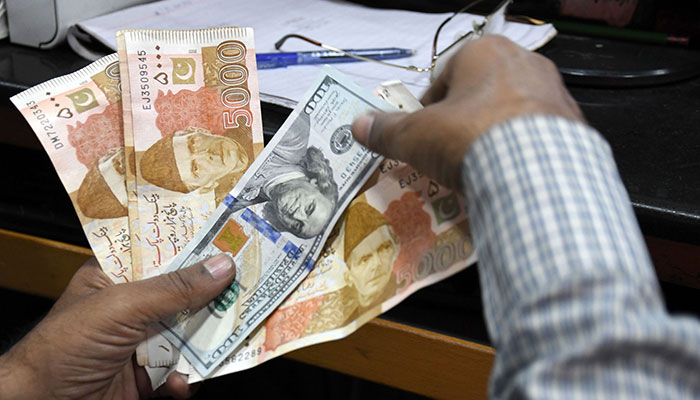Path to fiscal stability
LAHORE: The government’s plan to save Rs900 billion by streamlining and restricting bureaucracy is commendable, but additional steps must be taken to reduce unnecessary expenses, especially those benefiting the bureaucratic elite.
The finance minister has outlined measures to merge overlapping departments and eliminate redundant ones. Notably, 160,000 vacant budgeted posts will be abolished without affecting serving government employees, as vacant posts will not be refilled after retirements.
Facing a severe fiscal crisis, Pakistan must go beyond these steps to enhance efficiency. Implementing e-governance could automate processes, reduce paperwork and curb corruption. However, resistance to automation remains strong, and those obstructing progress must be held accountable.
Bureaucrats have expressed deep resentment over plans to link their performance to measurable outcomes and address non-performing staff. Government officials’ perks, such as luxury vehicles, foreign trips, and housing allowances, must also be curtailed. The government should also enforce energy-saving measures in its offices to cut utility costs.
Subsidy reforms are crucial. Many subsidies disproportionately benefit the wealthy rather than the poor. For example:Energy subsidies: wealthy consumers and industries benefit more from electricity subsidies due to higher consumption, while the poor gain little. Affluent urban areas also enjoy subsidised domestic gas rates, whereas rural households rely on expensive alternatives like LPG.
Fuel subsidies: general subsidies on petrol and diesel favour the wealthy, who use more fuel, compared to the poor, who rely on public transport or non-motorised vehicles.Agriculture subsidies: fertiliser, pesticide and water subsidies mainly benefit large landowners rather than small-scale farmers who lack resources to utilise them fully.
Tax exemptions: wealthy individuals and corporations in sectors like real estate and stock trading enjoy tax benefits, widening income inequality.State-owned enterprises (SOEs): loss-making entities are subsidised by the government. The elite disproportionately benefit from these services, while the general population bears the cost.
Luxury imports and housing loans: reduced duties on luxury goods and housing loan subsidies often benefit the affluent more than the needy.Development projects also favour affluent areas, leaving underdeveloped regions neglected. The government must focus on high socio-economic impact projects in education, health and infrastructure while scrapping politically motivated, economically unviable initiatives.
Defence budgets should be reviewed to eliminate inefficiencies, prioritize cost-effective strategies, and increase defence exports to offset expenses. Privatising loss-making SOEs is essential to stop financial drains, while profitable SOEs must improve governance and efficiency to contribute more revenue.Debt servicing remains the government’s largest expense despite lower interest rates. Debt restructuring and negotiating better terms with creditors are necessary to reduce interest payments. Additional revenues should be used to pay off costly short-term debts and reduce reliance on high-interest borrowing.
Accountability and anti-corruption measures must be strengthened to prevent misuse of public funds. Real-time audits and monitoring of development projects can help avoid cost overruns. Last, the government should transfer some responsibilities, such as infrastructure development, to the private sector using build-operate-transfer (BOT) models. This would reduce direct government spending while prioritising projects with high socio-economic returns.Comprehensive and sustained efforts are essential to address Pakistan’s fiscal challenges and lay the groundwork for long-term financial stability.
-
 Kanye West's Last Measure To Save Bianca Censori Marriage As He Tries To Salvage Image
Kanye West's Last Measure To Save Bianca Censori Marriage As He Tries To Salvage Image -
 Kim Kardashian Finally Takes 'clear Stand' On Meghan Markle, Prince Harry
Kim Kardashian Finally Takes 'clear Stand' On Meghan Markle, Prince Harry -
 Christina Applegate Makes Rare Confession About What Inspires Her To Keep Going In Life
Christina Applegate Makes Rare Confession About What Inspires Her To Keep Going In Life -
 Patrick J. Adams Shares The Moment That Changed His Life
Patrick J. Adams Shares The Moment That Changed His Life -
 Selena Gomez Getting Divorce From Benny Blanco Over His Unhygienic Antics?
Selena Gomez Getting Divorce From Benny Blanco Over His Unhygienic Antics? -
 Meet Arvid Lindblad: Here’s Everything To Know About Youngest F1 Driver And New Face Of British Racing
Meet Arvid Lindblad: Here’s Everything To Know About Youngest F1 Driver And New Face Of British Racing -
 At Least 30 Dead After Heavy Rains Hit Southeastern Brazil, 39 Missing
At Least 30 Dead After Heavy Rains Hit Southeastern Brazil, 39 Missing -
 Courtney Love Recalls How ‘comparison’ Left Marianne Faithfull ‘broken’
Courtney Love Recalls How ‘comparison’ Left Marianne Faithfull ‘broken’ -
 Pedro Pascal Confirms Dating Rumors With Luke Evans' Former Boyfriend Rafael Olarra?
Pedro Pascal Confirms Dating Rumors With Luke Evans' Former Boyfriend Rafael Olarra? -
 Ghost's Tobias Forge Makes Big Announcement After Concluding 'Skeletour World' Tour
Ghost's Tobias Forge Makes Big Announcement After Concluding 'Skeletour World' Tour -
 Katherine Short Became Vocal ‘mental Illness’ Advocate Years Before Death
Katherine Short Became Vocal ‘mental Illness’ Advocate Years Before Death -
 SK Hynix Unveils $15 Billion Semiconductor Facility Investment Plan In South Korea
SK Hynix Unveils $15 Billion Semiconductor Facility Investment Plan In South Korea -
 Buckingham Palace Shares Major Update After Meghan Markle, Harry Arrived In Jordan
Buckingham Palace Shares Major Update After Meghan Markle, Harry Arrived In Jordan -
 Demi Lovato Claims Fans Make Mental Health Struggle Easier
Demi Lovato Claims Fans Make Mental Health Struggle Easier -
 King Hospitalized In Spain, Royal Family Confirms
King Hospitalized In Spain, Royal Family Confirms -
 Japan Launches AI Robot Monk To Offer Spiritual Guidance
Japan Launches AI Robot Monk To Offer Spiritual Guidance




